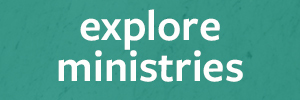Tapping into 'cultural learning opportunities, collaborations' with the Ho-Chunk community

By Beth Piggush, FSPA Integral Ecology Director, and Henry Greengrass, Ho-Chunk Nation Youth Services Center La Crosse Director
For many, the source of maple syrup is no secret. Others may just take for granted that we can go to the grocery store to buy some maple syrup or just some syrup with maple flavoring. What most likely is a secret? How the season of the sugar bush — a forest stand of maple trees utilized for maple syrup making — has taught us to build community and to restore our connection to nature and to each other. This has been the best part about our work in La Crosse, Wisconsin, with FSPA sisters, affiliates and the Ho-Chunk youth.
Now is the time to let you in on the details of this little secret, one that is generating great energy and impact. Back in the fall of 2022, Henry Greengrass, Ho-Chunk Nation Youth Services Center Director - La Crosse, met with Beth Piggush, FSPA Integral Ecology Director. The two of them were connected through Sister Eileen McKenzie and the initial meeting was a simple hike on St. Joseph Ridge, walking and talking about plants, food, cultures and history. Beth was excited to meet Henry, as this presented an opportunity to learn from him about how the Indigenous community connects to the land and works with the land. As it turns out, this was not an option. It was, rather, the start of something together — to learn about the land, the needs of the land and the bounty the land shares.
“You’re asking for me to share indigenous knowledge of the land. I’m sorry, but I don’t have any Indigenous knowledge when it comes to the land. Do you know why?” asked Henry. “No,” was the answer. It was an assumption that Henry had this knowledge because he is Native American. The books we read as children in school shared stories about how Native Americans taught the colonists how to feed themselves (example: Thanksgiving).
“What do you know about residential boarding schools?” asked Henry. Once again there was no real answer. “A lot of this knowledge was not passed down due to the assimilation tactics of these boarding schools. I think we need to sit down and talk.” The dialogue on this topic started a new relationship that was not expected, along with a journey to learn what was not taught in schools and to unlearn what inaccurate information about Native American communities that is still being taught today.



Over the course of the last year and a half, Henry and Beth have tapped into their existing networks of people. They found surprising connections that enhance the work more than ever expected. The mission of Ho-Chunk Nation Youth Services is to “meaningfully enhance the lives of our youth, through cultural learning opportunities, collaborations and exposure to sustainable living practices.” Opportunities for youth include programs on language, history, tradition and culture, prevention, safety, life skills and promoting positive family values. Henry’s team collaborates with people both within the Ho-Chunk Nation and with external support groups.
A few key people include Ho-Chunk Nation Life Skills Coordinator Rita Kingswan, who provides culturally-infused workshops and one-on-one assistance; Heather Jerzak, a registered dietician and nutritionist for the Ho-Chunk Nation Community Health Department; and, from the University of Wisconsin Extension Program, Heather Quackenboss, Human Development and Relationship Educator, and Emily Crook, Positive Youth Development Educator (and FSPA affiliate). These individuals have supported Ho-Chunk Nation Youth Services by sharing knowledge that aligns with the interests and passion of the youth, meeting their needs first and then integrating the information. When the FSPA Integral Ecology Team began supporting Ho-Chunk youth programming, we provided environmental knowledge and place-based opportunities. (And a huge bonus to working professionally together is finding intersections we have with personal connections as friends, neighbors and even as parents).
Fast forward to this spring. We are all continuing the journey together to learn about the land and unlearn about the history of Native Americans that has been inaccurately taught. We have held a space that allows for discovery, for Ho-Chunk youth and FSPA sisters and affiliates to learn about the process of boiling sap down to produce maple syrup. Through our efforts, we have
created and held a space for hospitality, because when we come together, we sit and talk, eat, work and joke together. This is why boil-down days are the best-kept secret! It is a community gathering that feels like a family reunion, bringing a dish to pass, sitting by the fire to catch up and greeting each new person as they join the “circle.”
The joy and familiarity of sharing our maple syrup season together has opened us to spreading more collaborative learning on the FSPA land on St. Joseph Ridge. All of this has created a hub of activity. Together the youth and adults (including Henry and Beth) are learning about the plants that provide medicine, how to grow a three sisters garden (corn, beans and squash) and the steps necessary to tan a hide. Our relationships, with each other and the land, are building bridges and making repairs that are long overdue. When we gather from season to season, we can easily catch up, support and learn from each other. Together we are committed to re-learning traditional practices, holding a space for community and sharing our story within the FSPA community and beyond.


